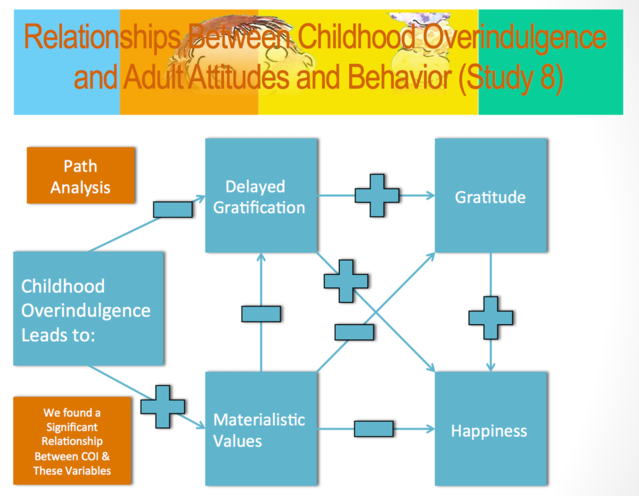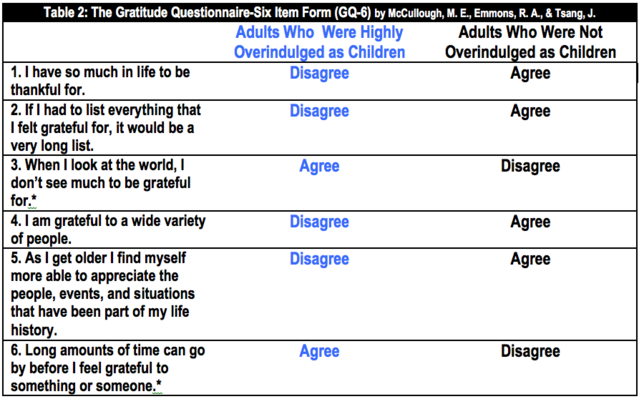Gratitude
The Links Between the Ungrateful Child and Overindulgence
Why do some children grow up grateful and full of joy while others do not?
Posted September 10, 2019 Reviewed by Lybi Ma
I think that the noted theologian Karl Barth got it right when he wrote, “Joy is the simplest form of gratitude.” Why do some children grow up to be grateful and full of joy while other children do not? Could the answer to this question be related to childhood overindulgence?
To test this hypothesis, Slinger and Bredehoft asked 466 participants to answer 128 questions consisting of demographic data and seven psychological scales. The results show that children who are joyful and grateful had parents who did not overindulge them and conversely children who were unhappy and not grateful had parents who overindulged them.

The Findings
Childhood overindulgence leads to:
- being unhappy
- being ungrateful
- the inability to delay gratification
- an increase in materialistic values
Children who were not overindulged were better-equipped to delay gratification, less materialistic, had greater feelings of gratitude and greater happiness. Further, a significant difference in gratitude scores between those who were overindulged as children, and those who were not overindulged were reported on The Gratitude Questionnaire (see Table 2).

Participants who were not overindulged reported that they:
- learned to appreciate the people in their lives and the sacrifices that they made for them
- learned the true value of “things" and what it means to earn them
- felt grateful for the abundance in their lives and appreciated the people who made sacrifices for them.
- learned what it means to earn something
Tips for Avoiding Overindulgence and Teaching Gratitude
- Model gratitude. Show them how to do gratitude daily.
- Teach your children to say “thank you.”
- Give them less.
- Encourage them to reflect on the people in their lives and what they have done for them. Have them count their blessings.
- Require children to earn some things.
- Assign chores to your children.
Related Articles
The Challenge of Raising a Grateful Child
Strategies To Raise a Grateful Child - Part 1
Strategies To Raise a Grateful Child - Part 2
Do all things with Love, Grace, and Gratitude
© 2019 David J. Bredehoft
References
Slinger, M., and Bredehoft, D. J. (2010). Relationships between childhood overindulgence and adult attitudes and behavior. Poster presented at the 2010 National Council on Family Relations Annual Conference, November 5, 2010, Hilton Hotel, Minneapolis, MN.
McCullough, M. E., Emmons, R. A., & Tsang, J. (2002). The grateful disposition: A
conceptual and empirical topography. Journal of Personality and Social Psychology, 82, 112-127.
Related Article: The Challenge of Raising a Grateful Child


